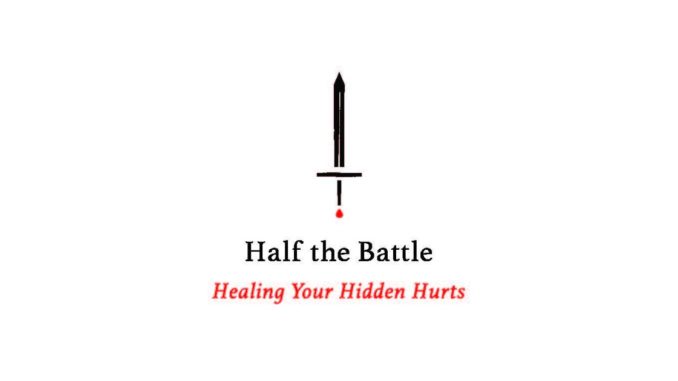
Published by Gateway Press on September 1, 2020
Genres: Non-Fiction, Christian Life
Buy on Amazon
Goodreads

Do you ever feel the pressure to hide your struggles in order to look like a “good Christian”? The truth is, we all face battles and hurts in our lives. Scripture is full of God-fearing men and women who tried to cover up their problems. For Mary and Martha, the death of their brother, Lazarus, was the ultimate devastation. They put his body in a dark place and rolled a stone in front of it. But God knew where they buried their pain, and He knows where you bury yours too.
Jon Chasteen explores Old and New Testament examples of people whom God invited to begin the healing process by confronting their secret pain. Through this book with an included study guide, you will learn to: Acknowledge the struggles you’ve been avoidingLet go of shame and regretPartner with God in your healingFind freedom and lasting peace God wants to visit the place of your pain, redeem your past, and set you free. Will you let Him?
We all have hidden hurts. They’re the losses that we’ve buried deep within ourselves. The childhood traumas that we’ve consciously forgotten. The pent-up anger and frustration of some unmet expectations. Jon Chasteen uses the imagery from the Old and New Testaments to make his point that we need to allow God to work in our hidden struggles to heal them.
In the first chapter, he likens this need to the battle of Jericho, reminding readers that Jericho’s defeat came only after the unseen portion of the battle had been fought. He invites readers to let God into those secret places of their heart to begin healing their roots, so that it might overflow into their outward life.
The second chapter uses the resurrection of Lazarus to make the point that God does not want us to be closed to him, but wants us to open up, analogizing Lazarus’s closed tomb with a human predilection to hide our hurts. And this may have been the start of my concern about the book, because that’s not what the resurrection of Lazarus is about. Chasteen creates a metaphor where there isn’t one. The overriding point of the resurrection of Lazarus isn’t that we shouldn’t try to hide pain, but that Jesus is the Messiah who conquers death. It’s not that Chasteen’s point is wrong, it’s that the Scripture he’s using as support isn’t supportive of that particular thing. It’s bad exegesis.
As I moved through the book, I also found that it read more like a manuscript. Sure enough, this book stemmed from a series of sermons that Chasteen preached and it looks like only minimal editing was done to convert the series to written form. At best, this would lead to a very conversational tone, but for Half the Battle the result is too conversational. Chasteen digresses, then comes back. He jumps from passage to passage. It’s conversationally spoken, but poorly written and it makes it difficult to keep up with the point.
There’s also the book’s liberal use of self-quotes. The whole left leaf of the dust jacket is a listing of the book’s “notable quotes.” In a 146-page book, 26 of those pages are one sentence quotes from the main content of the book. These quotes are seemingly randomly included, without good design or structure behind it. From a structural standpoint, the book is an absolute mess, which makes it difficult to read.
I think this book had an important point to make, but it completely struck out on trying to make it. Reading this book was a frustrating exercise. That’s maybe not Chasteen’s fault. It’s definitely the publisher’s fault. Chasteen’s writing is mediocre at best and that is Chasteen’s fault. The constant inundation with “power quotes” that are not powerful makes the book reek of arrogance and self-importance, even though I doubt that was Chasteen’s goal. And, to top it all off, his exegesis is sketchy in some areas. I could forgive any one of these, but taken together Half the Battle is a good message presented very amateurishly.
